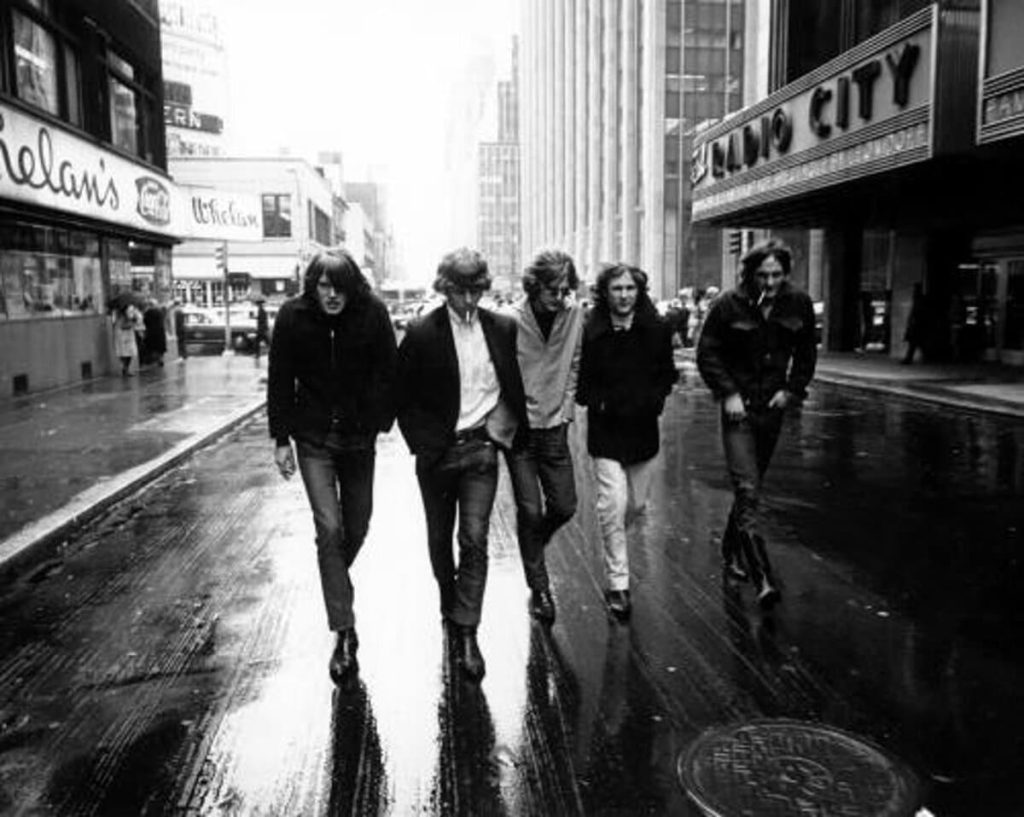
“I’ll Feel a Whole Lot Better” – The Byrds’ Timeless Breakup Anthem
Released in 1965 as a standout track on The Byrds’ debut album Mr. Tambourine Man, “I’ll Feel a Whole Lot Better” has become one of the band’s most beloved songs, transcending its original era to earn a permanent place in the canon of folk-rock classics. Written by Gene Clark, the song didn’t achieve major chart success on its own—it was tucked away as a B-side to the single “All I Really Want to Do”—but over time, it grew in stature as one of The Byrds’ finest tracks. With its jangly guitars, bittersweet lyrics, and a melody that sticks with you long after the final note fades, “I’ll Feel a Whole Lot Better” exemplifies everything that made The Byrds’ early music so influential.
At first listen, the song appears to be a straightforward breakup tune, but it’s Clark’s lyrical finesse that gives it depth. The opening line—“The reason why, oh, I can’t say”—immediately sets a tone of emotional confusion, suggesting that even the singer himself isn’t entirely sure what went wrong. This vagueness adds a layer of authenticity to the song, reflecting the complex feelings that often accompany the end of a relationship. As the chorus kicks in—“I’ll probably feel a whole lot better when you’re gone”—the listener gets a sense that the narrator is grappling with a mix of relief, regret, and frustration. It’s not a triumphant declaration of independence, but rather a reluctant acceptance that things will improve, even though the parting is tinged with sorrow.
Musically, “I’ll Feel a Whole Lot Better” captures the essence of The Byrds’ signature sound: a blend of folk-inspired lyrics and jangly electric guitars, largely influenced by the music of The Beatles and Bob Dylan. The band’s use of the Rickenbacker 12-string guitar, played by Roger McGuinn, adds a shimmering texture that became a hallmark of the folk-rock movement. It’s impossible to talk about this song without mentioning how much it influenced later artists—Tom Petty famously covered it, and its sound can be heard in the work of bands like R.E.M. and The Smiths.
The song’s simple yet infectious structure—clocking in at just under 2 minutes and 35 seconds—is a testament to The Byrds’ ability to pack emotional weight into concise, radio-friendly tunes. The interplay between McGuinn’s chiming guitar and Clark’s smooth vocal delivery creates a breezy, uplifting sound that contrasts beautifully with the song’s melancholic lyrics. This juxtaposition of light and dark became a defining characteristic of the band’s style, allowing listeners to experience multiple emotions at once. Even though it’s essentially a breakup song, “I’ll Feel a Whole Lot Better” never wallows in sadness; instead, it offers a glimmer of hope, suggesting that even in heartache, there’s the promise of better days ahead.
The song’s B-side status didn’t stop it from becoming a fan favorite and a cornerstone of the Byrds’ live performances. Over the years, its influence has only grown, with many music critics and historians citing it as one of Gene Clark’s greatest compositions. Clark, often seen as the band’s most gifted songwriter, imbued the song with a personal touch that resonated with listeners. His understated vocal delivery hints at vulnerability, making the song feel authentic and relatable. The line “I’ve got to leave if I don’t, I’ll go insane” is a perfect example of how Clark could take a simple sentiment and make it feel profound.
“I’ll Feel a Whole Lot Better” also holds a special place in The Byrds’ history, marking Gene Clark’s emergence as a key creative force within the group. Though Clark would eventually leave the band due to personal and professional struggles, his contributions to their early success are undeniable. This song, in particular, serves as a reminder of Clark’s talent and his ability to blend folk storytelling with rock instrumentation in a way that felt fresh and innovative at the time.
In the years since its release, “I’ll Feel a Whole Lot Better” has been covered by numerous artists, from Tom Petty to Bangles, cementing its status as a classic that continues to resonate across generations. It’s a song that perfectly captures the complicated emotions of letting go—both sad and hopeful, light and heavy, all at once. For fans of The Byrds, it remains a quintessential track, encapsulating the band’s unique sound and the genius of Gene Clark’s songwriting.
Whether you’re a long-time admirer of The Byrds or hearing it for the first time, “I’ll Feel a Whole Lot Better” is one of those rare songs that feels timeless. Its jangly guitars, honest lyrics, and soulful delivery ensure that it will always have a place in the hearts of listeners, reminding us that moving on is never easy—but sometimes, it’s exactly what we need.